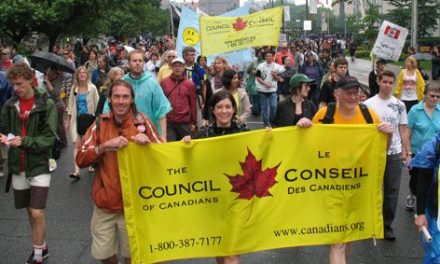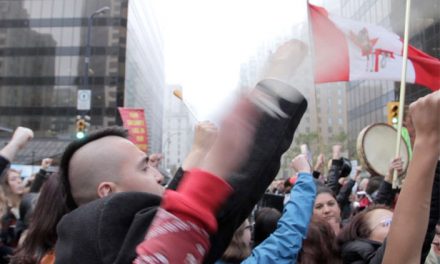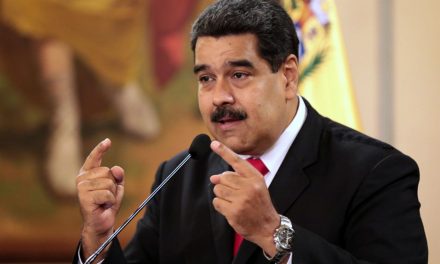A pink tide turns red
This article is from the forthcoming issue of the Monitor, a bimonthly magazine put out by the Canadian Centre for Policy Alternatives.
By Jim Hodgson
You may have seen Beatríz at Dinner, a new film that stars Salma Hayak as an unexpected guest of some California one-per-centers. “All your pleasures are built on others’ pain,” Beatríz says to her hosts. In good storytelling style, a personal conflict stands in for a profound social one: the relationship between power and wealth on the one hand, and vulnerability and poverty on the other. In the face of a monster, the film shows Beatríz making a choice: to kill or to die.
But there is a third choice (readers of The Monitor probably made this choice long ago): to join with others in working for social and ecological justice.
With the election of Hugo Chávez as president in December 1998, Venezuelans embarked on a decades-long effort to wrest control of the country from the tiny elite that had always run everything for their own benefit. Under the old rules, elite-backed parties would make promises and dole out favours, but nothing really changed for the impoverished majority. The government owned the oil company, but benefits accrued to senior managers, not the state.
Every step along Venezuela’s now 19-year-old transformation has been met with resistance. The old elites, together with middle class sectors that identify with them, were (perhaps predictably) unwilling to commit class suicide; they found powerful allies among foreign powers, including much of the international media. What is playing out now in Venezuela, with almost daily demonstrations, some of them violent, is resistance by those whose pleasure once depended on the pain of others.
In this piece, I want to share some thoughts about what has happened and why, together with some guesses as to what may happen now, and some lessons that might be useful in considering social change processes elsewhere.
For many of us in Common Frontiers—the coalition of Canadian labour, human rights and religious groups working for trade justice in the Americas—our first contact with the new Venezuelan government came in November 1999 in Toronto. In those days, just a few weeks before the mass protests around the World Trade Organization meeting in Seattle, and less than 18 months ahead of similar protests at the Quebec City Summit of the Americas, it was still possible to gather civil society representatives and trade ministers into a room for a conversation. Most of the government representatives talked proudly of “putting a human face on globalization,” but the minister representing Venezuela drew applause for saying that concern for the rights of the poor needed to be central in trade talks and public policy-making.
In those years, Common Frontiers was working with other groups throughout the Americas in the Hemispheric Social Alliance (HSA) to develop a different approach to trade and international relations. Latin Americans had lived through successive (and failed) “decades of development,” and then through neoliberal dogma about restraint that was justified by a need to repay foreign debt.
In spaces like the World Social Forum and the HSA, new ideas emerged. A series of proposals that came to be known as Alternatives for the Americas were instrumental in eventually defeating the proposed Free Trade Agreement of the Americas (FTAA) in 2005, and some proposals were adopted by some of the new “pink tide” governments that were elected in Latin America and the Caribbean in the years after the election of Chávez.
One of the first moves by the new Chávez government was to rewrite the national constitution. It came into effect following a plebiscite in December 1999, even giving the country a new name: the Bolivarian Republic of Venezuela. The new constitution expanded civil rights and included socioeconomic rights, such as the right to employment, housing and health care, while also expanding minority rights (notably those of Indigenous peoples) and the rights of women. In 2001, some 49 laws were passed to redistribute land and wealth. Land reform continued in early 2005 with the abolition of large estates for the benefit of the rural poor.
Jim Hodgson is Latin America Program Co-ordinator at the United Church of Canada. He has been involved in Common Frontiers since 1999.






